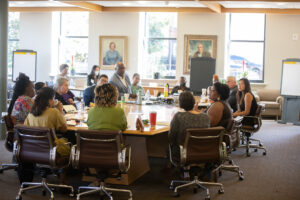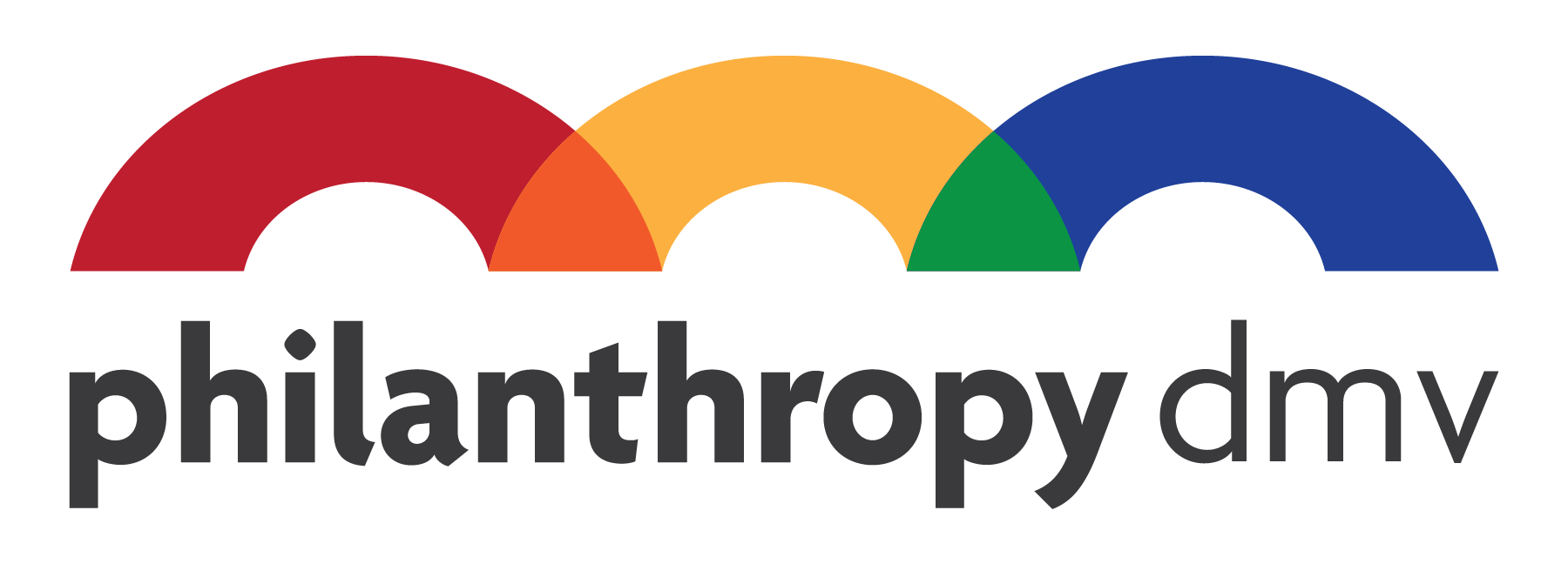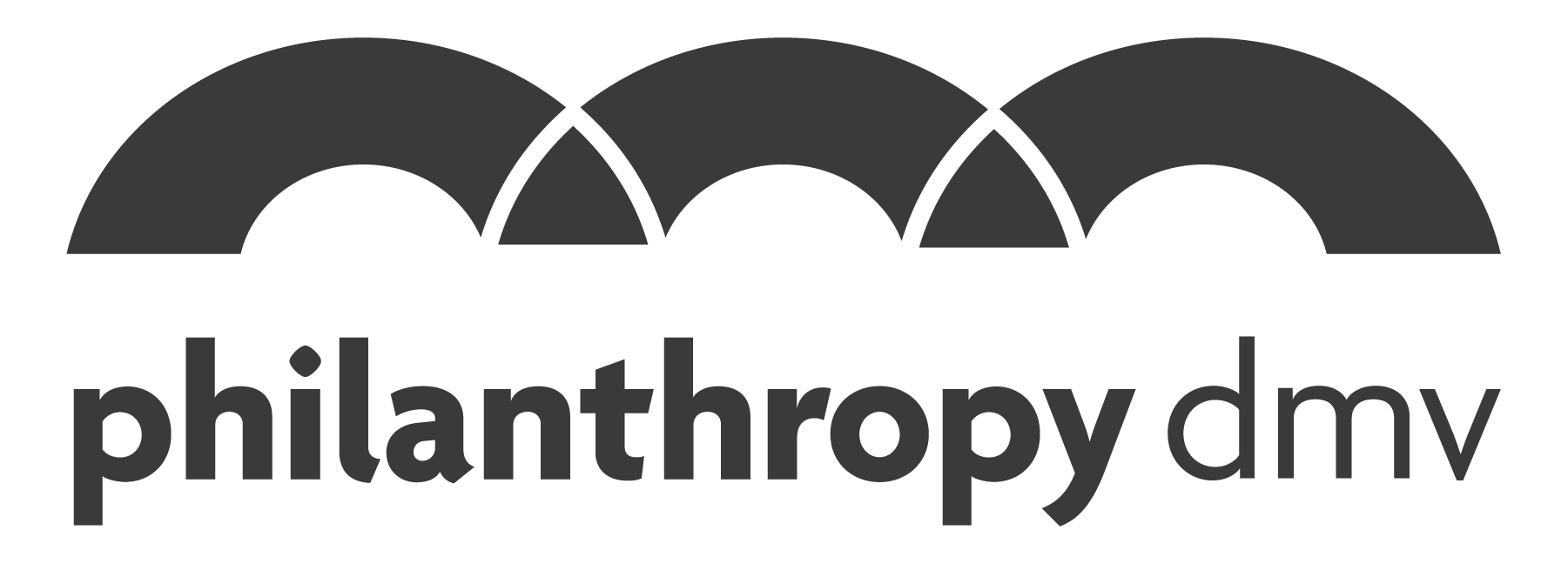
Written by: Dan Tsin, Director, Equal Measure, and Leni Dworkis, Philanthropy DMV’s former Director, Programs & Operations
On September 19, 2023, Philanthropy DMV and Equal Measure convened a small, invite-only group of funders to explore together how organizations and their people are defining and measuring racial equity. As funders arrived, they filled in around a large conference room table inside the historic True Reformer Building in Washington, DC. There was palpable energy and laughter as longtime colleagues reconnected, as well as a tentative intrigue from those newer to the space. Genuine relationships—along with the care and empathy that stem from connections—were the grounding force, setting the stage for the authentic sharing necessary for conversations around equity and justice.
After some grounding and centering, the group shared key individual learning moments from the last year. What emerged was a robust conversation that captured the challenges of individual and organizational racial equity journeys, highlighting questions such as:
- What risks are posed to those with deep lived experience as they engage with philanthropy?
- How do genuine relationships across race form and struggle through philanthropic partnerships together?
- Can you be your full, authentic self in philanthropy in unapologetic ways?
ACKNOWLEDGING HARD TRUTHS IN PHILANTHROPY
Through these discussions, participants found themselves wrestling with the origins of philanthropy and the underlying reasons foundations have accumulated wealth and influence—namely, capitalism (and more specifically, racialized capitalism). This meant acknowledging that philanthropy’s resources were amassed from practices and conditions that excluded and profited from communities experiencing poverty as well as Black, Indigenous, and other communities of color. This truth was juxtaposed to the shared vision of a just and equitable society, where all community members have agency over their lives and the freedom to pursue their dreams. If these hard truths are not acknowledged and the status quo challenged, philanthropy is poised to continue it.
WORKING TOGETHER IN NEW WAYS
Participants discussed how choosing different ways of working—with each other, grantees, and community members—could foster learning and action around more equitable relationships and giving, specifically when considering the distribution and accumulation of philanthropy’s wealth. The group agreed doing so will require building real, authentic relationships with the communities they serve and a commitment to ceding the power it has historically relied on.
In advancing these strategies, participants also noted the need to explicitly name racial equity and racial justice in their practices and communications with partners, grantees, and staff. But as is common through all organizational shifts, change is difficult, and progress is rarely linear. Participants discussed several challenges from navigating the nation’s political climate, including the recent rise of anti-DEI legislation, to finding like-minded partners.
JOIN OUR DISCUSSION ON ADVANCING RACIAL EQUITY IN PHILANTHROPY
Together, Equal Measure and Philanthropy DMV are exploring what a regional approach to advancing racial equity could look like for philanthropy.
- How might foundations acknowledge both the origins of and harm caused by wealth in philanthropy, specifically the role of racialized capitalism in their partnerships, investments, and advocacy? What steps can foundations take to counteract the harm caused?
- What steps can foundations take to authentically build relationships with community members, including sharing decision-making power?
- How do foundations continue to center and elevate their communities’ humanity over things that are traditionally prioritized, like money, power, and outcomes?
- How should foundations respond to the current political climate (including anti-DEI legislation and recent Supreme Court decisions)? What is the role of advocacy and community mobilization in philanthropy’s efforts to disrupt or upend systems?
- How can foundations keep from backsliding in advancing racial justice work? How can the sector maintain momentum, and what gets in the way?
- How should foundations work with or partner with institutions that that hold different values on racial equity? What are the opportunities to bring these institutions along or support them? And when should we just say “no”?
These conversations and questions just began to scratch the surface of what a regional approach to advancing racial equity could look like for philanthropy. In truth, we need more time and more conversations to both reflect on the practices we want to leave behind and build a collective vision of what philanthropy could be. We hope the Philanthropy DMV community continues to dream together.


